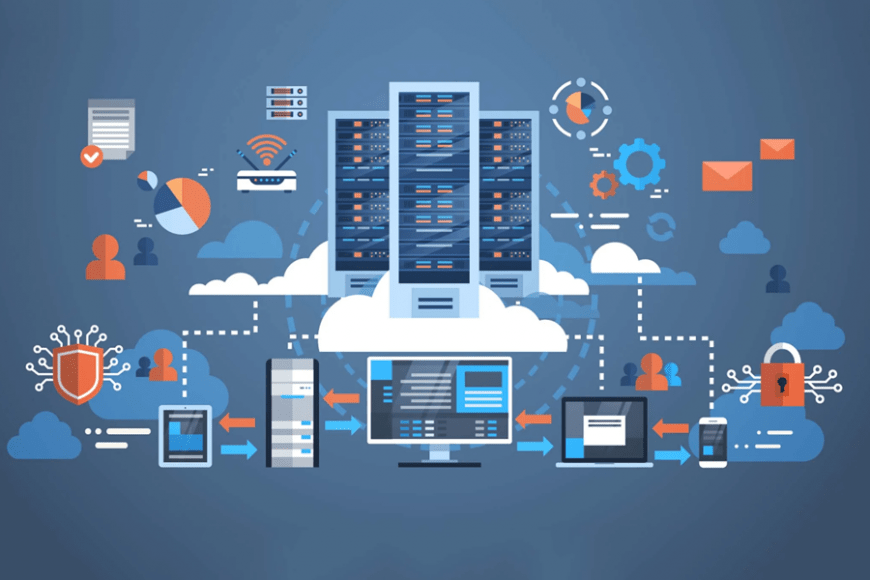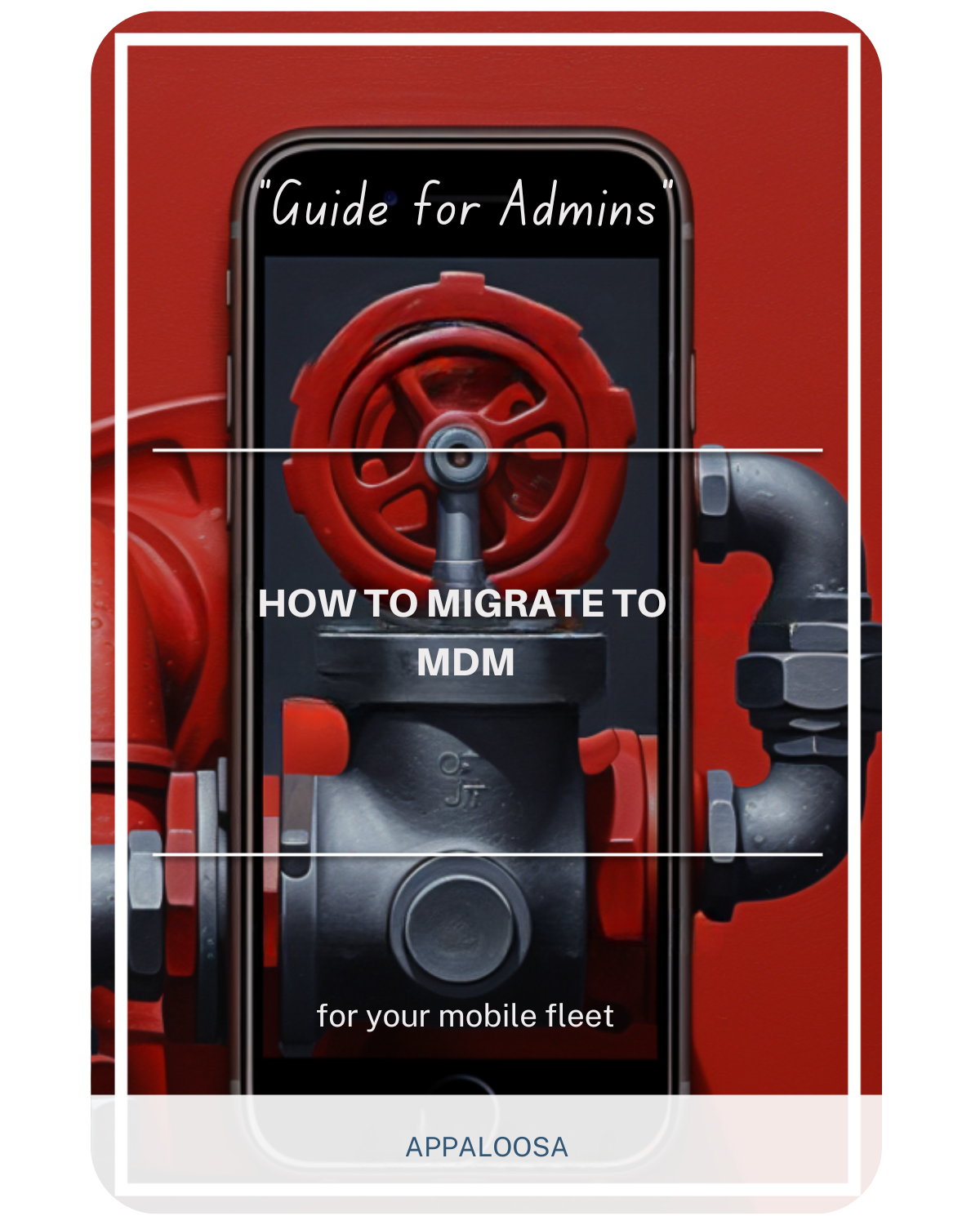Understanding Endpoint Management

In today's interconnected business landscape, managing the vast array of devices connecting to corporate networks has become a critical challenge.
From laptops and desktops to smartphones and internet of things IoT devices, every endpoint represents both an opportunity for productivity and a potential security threat.
This is where an effective endpoint management system becomes indispensable for organizations of all sizes, especially as remote work continues to reshape how businesses operate.
Understanding Endpoint Management
End point management is the systematic approach to administering, monitoring, and securing all devices that connect to an enterprise network. These endpoints include traditional computers, mobile devices, tablets, servers, and increasingly, internet of things IoT devices and smart equipment.
The primary goal is to ensure these managed endpoint devices operate efficiently, securely, and in compliance with organizational policies while maintaining visibility and control across the entire infrastructure.
At its core, endpoint device management encompasses several critical functions:
- Device Configuration: Setting up devices with appropriate operating system configurations, software, and access permissions
- Security Policy Enforcement: Implementing and maintaining endpoint management security protocols across all endpoints
- Software Distribution: Deploying applications, antivirus software, and updates systematically
- Performance Monitoring: Continuously monitoring device health and usage patterns
- Compliance Management: Ensuring devices meet regulatory and organizational standards
Types of Endpoints in Modern Organizations
Understanding the various types of endpoints is crucial for developing comprehensive management strategies:
Traditional Computing Devices
- Desktop computers
- Laptops and notebooks
- Servers and workstations
- Thin clients
Mobile Devices
- Smartphones
- Tablets
- Wearable devices
- Mobile hotspots
IoT and Smart Devices
- Smart printers and scanners
- Connected security cameras
- Environmental sensors
- Industrial control systems
Each type requires specific manageability software and security considerations, making a unified approach essential for security teams.
The Rise of Mobile Endpoint Management

With the proliferation of smartphones and tablets in the workplace, mobile endpoint management has emerged as a crucial subset of overall endpoint strategy.
The BYOD (Bring Your Own Device) trend, combined with increased remote work adoption, has further complicated the landscape, as IT departments must now secure and manage personal devices accessing corporate resources.
Mobile endpoint management solutions typically include:
Mobile Device Management (MDM)
MDM focuses specifically on managing mobile devices, enabling IT administrators to:
- Remotely configure device operating system settings
- Deploy and manage mobile applications
- Enforce endpoint management security policies
- Perform remote wipes in case of loss or theft
- Maintain visibility and control over mobile fleet
Mobile Application Management (MAM)
MAM provides granular control over applications, allowing organizations to:
- Manage corporate apps separately from personal apps
- Control data sharing between applications
- Implement app-specific security policies
- Deploy enterprise app stores
- Ensure manageability and security of business applications
Mobile Content Management (MCM)
MCM ensures secure access to corporate content on mobile devices through:
- Encrypted file storage
- Secure document sharing
- Content access controls
- Data loss prevention measures
Enterprise Endpoint Management: A Holistic Approach
Enterprise endpoint management takes a comprehensive view of all organizational endpoints, integrating various endpoint management tool capabilities and strategies into a unified framework. This approach has evolved from simple device management to encompass sophisticated manageability and security features that protect against modern security threat vectors.
Unified Endpoint Management (UEM)
UEM platforms provide a single console for managing all device types, offering:
- Centralized policy management across different operating system platforms
- Cross-platform compatibility
- Streamlined IT operations
- Consistent user experiences
- Cloud based deployment options
Integration with Security Frameworks
Modern enterprise endpoint management solutions integrate closely with security tools, enabling security teams to:
- Deploy and manage antivirus software across all endpoints
- Implement Endpoint Detection and Response (EDR)
- Connect with Security Information and Event Management (SIEM)
- Enable Identity and Access Management (IAM)
- Support Zero Trust Network Access (ZTNA)
Key Components of an Endpoint Management System
A robust endpoint management software comprises several essential components working in concert:
1. Discovery and Inventory Management
The foundation of effective endpoint device management is knowing what devices exist on your network. This includes:
- Automated device discovery for all types of endpoints
- Hardware and software inventory tracking
- License management for operating system and applications
- Asset lifecycle monitoring
- Continuously monitoring new device connections
2. Configuration Management
Ensuring consistent device configurations across the enterprise through:
- Standardized device images
- Group policy management
- Configuration baselines
- Automated remediation
- Cloud based policy distribution
3. Patch Management
Keeping managed endpoint devices updated and secure requires:
- Automated patch deployment
- Testing and validation processes
- Rollback capabilities
- Compliance reporting
- Operating system update management
4. Remote Support and Troubleshooting
Endpoint management tool solutions enable IT teams to:
- Remotely access devices for support
- Diagnose and resolve issues without physical presence
- Reduce downtime and support costs
- Improve user satisfaction
- Support remote work scenarios effectively
The Critical Role of Endpoint Monitoring

Endpoint monitoring serves as the eyes and ears of your IT infrastructure, continuously monitoring and providing real-time visibility and control into:
Performance Metrics
- CPU and memory utilization
- Disk space and health
- Network connectivity
- Application performance
- Operating system stability
Security Indicators
- Unusual process behavior
- Unauthorized access attempts
- Malware detection by antivirus software
- Policy violations
- Emerging security threat patterns
Compliance Status
- Patch levels
- Security configuration compliance
- Software licensing
- Data protection measures
- Endpoint management security policy adherence
Effective endpoint monitoring enables proactive management, allowing security teams to address issues before they impact users or compromise security.
Best Practices for Endpoint Management Implementation
Successfully implementing endpoint management software requires careful planning and execution:
1. Define Clear Policies and Procedures
- Establish device usage policies for all types of endpoints
- Create security standards
- Document compliance requirements
- Define incident response procedures
- Address remote work scenarios
2. Implement Layered Security
- Deploy comprehensive antivirus software
- Enable device encryption
- Implement multi-factor authentication
- Establish network segmentation
- Ensure endpoint management security at every level
3. Leverage Cloud-Based Solutions
- Utilize cloud based management platforms
- Enable remote management capabilities
- Ensure scalability for growth
- Reduce infrastructure costs
- Support distributed remote work teams
4. Empower Security Teams
- Provide appropriate manageability software tools
- Enable real-time threat intelligence
- Facilitate collaboration between teams
- Offer continuous training
- Establish clear escalation procedures
5. Regular Auditing and Reporting
- Conduct compliance audits
- Generate performance reports
- Review security incidents
- Track improvement metrics
- Assess manageability and security effectiveness
Choosing the Right Endpoint Management Solution
Selecting an appropriate endpoint management tool requires evaluating several factors:
Scalability
Can the solution grow with your organization? Consider:
- Device capacity limits
- Performance at scale
- Multi-site support
- Cloud based vs. on-premise options
- Support for emerging internet of things IoT devices
Platform Support
Ensure comprehensive coverage of your device ecosystem:
- Multiple operating system support (Windows, macOS, Linux)
- iOS and Android management
- IoT device compatibility
- Legacy system support
- Future types of endpoints
Security Capabilities
Evaluate endpoint management security features:
- Integration with antivirus software
- Threat detection capabilities
- Incident response tools
- Compliance management
- Support for security teams
Management Features
Assess manageability software capabilities:
- Continuously monitoring options
- Remote management tools
- Automation capabilities
- Reporting and analytics
- Visibility and control dashboards
The Future of Endpoint Management
As technology evolves, enterprise endpoint management continues to adapt to new challenges and opportunities:
AI and Machine Learning
- Predictive analytics for managed endpoint failures
- Automated security threat detection
- Intelligent policy recommendations
- Self-healing capabilities
- Enhanced manageability and security
Edge Computing and IoT
- Managing distributed computing resources
- Securing internet of things IoT devices
- Optimizing bandwidth usage
- Local data processing
- New types of endpoints integration
Enhanced Remote Work Support
- Improved remote work security
- Better user experience for distributed teams
- Cloud based management capabilities
- Zero-touch provisioning
- Location-independent visibility and control
Benefits of Comprehensive Endpoint Management

Organizations implementing robust endpoint management software strategies realize numerous benefits:
Enhanced Security
- Reduced security threat exposure
- Faster threat response by security teams
- Improved compliance posture
- Better data protection
- Comprehensive endpoint management security
Operational Efficiency
- Reduced IT workload through manageability software
- Lower support costs
- Minimized downtime
- Streamlined processes
- Better managed endpoint performance
Improved User Productivity
- Faster issue resolution
- Consistent user experiences across operating system platforms
- Self-service capabilities
- Reduced disruptions
- Seamless remote work support
Cost Optimization
- Better resource utilization
- Reduced security incidents
- Lower compliance costs
- Improved ROI on endpoint management tool investments
- Efficient cloud based operations
Addressing Common Challenges
While implementing comprehensive endpoint management strategies, organizations often face challenges:
Managing Diverse Endpoints
- Address varying types of endpoints
- Standardize operating system configurations
- Deploy appropriate antivirus software
- Ensure consistent manageability and security
- Maintain unified visibility and control
Security Complexity
- Keep pace with evolving security threat landscape
- Coordinate between security teams
- Implement comprehensive endpoint management security
- Balance security with usability
- Enable continuously monitoring without impacting performance
Remote Work Considerations
- Secure remote work environments
- Manage bandwidth constraints
- Ensure consistent user experience
- Maintain cloud based accessibility
- Protect corporate data on personal devices
Conclusion
In an era where endpoints are the new perimeter and remote work is the norm, effective endpoint management software implementation is no longer optional—it's essential.
Whether focusing on mobile endpoint management for a distributed workforce or implementing comprehensive enterprise endpoint management across all types of endpoints, organizations must adopt a strategic approach that balances manageability and security.
The key to success lies in choosing the right endpoint management tool solutions, implementing robust endpoint monitoring capabilities with continuously monitoring features, and maintaining a commitment to continuous improvement.
As security threat vectors evolve and technology advances, your endpoint management strategy must adapt accordingly.
By leveraging cloud based solutions, empowering security teams with appropriate tools, and maintaining comprehensive visibility and control across all managed endpoint devices, organizations can transform endpoint management from a challenge into a competitive advantage.
Whether protecting traditional computers, mobile devices, or internet of things IoT devices, the investment in proper endpoint management security today will pay dividends in improved security, enhanced productivity, and reduced operational costs for years to come.
Remember, endpoint management is not a destination but a journey. Start where you are, use what you have, deploy robust antivirus software and manageability software, and continuously evolve your approach to meet the changing needs of your organization and the ever-shifting threat landscape.
With the right tools, processes, and people, you can keep every endpoint secure.
This applies to all operating systems and locations. You can also ensure they stay compliant and productive.
